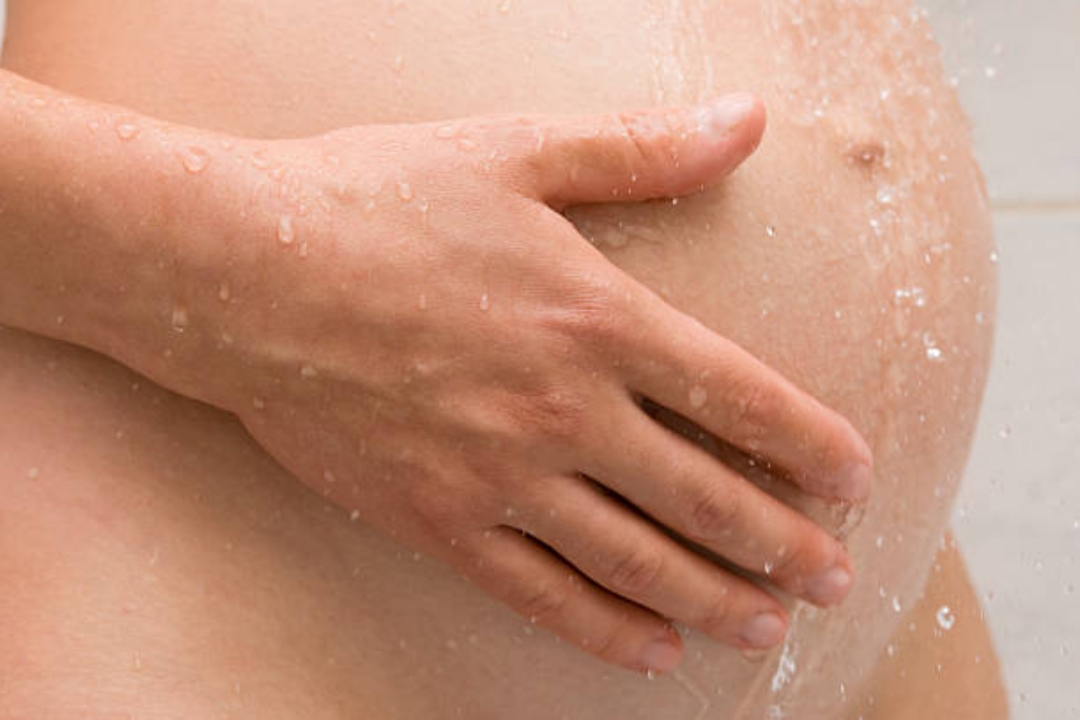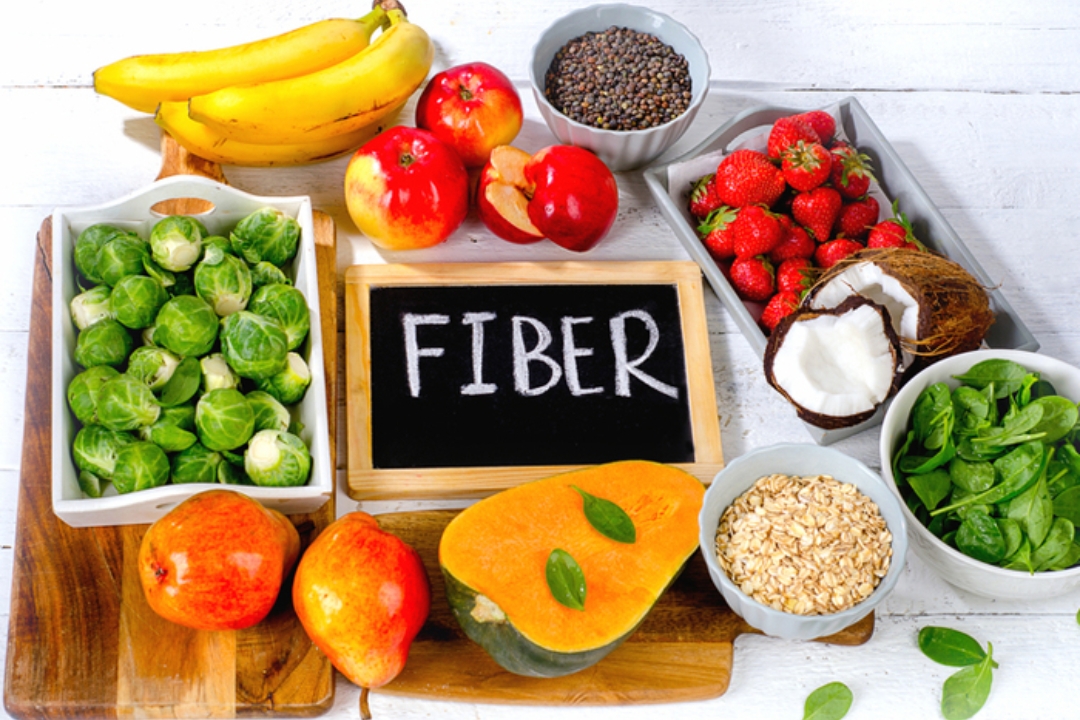Table of Contents
Why is hygiene important in pregnancy?
Hygiene is an important factor to consider when a woman is pregnant. Taking proper care of one’s body during this special time can help ensure that both the mother and baby remain healthy throughout the pregnancy. Therefore, it is essential for women to understand why promoting good hygiene habits during this time is so important.
Pregnant women should make sure they are keeping their bodies clean and hygienic by bathing regularly, using gentle cleansers, brushing their teeth twice a day, and washing their hands with warm water and soap often throughout the day. It is particularly important to keep up with basic hygiene practices if they are experiencing morning sickness or any other kind of vomiting as these actions will help prevent bacterial infections from occurring. Furthermore, the use of deodorant will also be beneficial in helping reduce any unpleasant odors associated with pregnancy related sweating.
How should I clean my private parts during pregnancy?

It is very important to keep yourself clean during pregnancy, especially your private parts. The best way to do this is by using a bidet. A bidet is a hygienic device that uses water pressure to clean the anal and genital area by spraying it onto the skin. It can be used for basic cleaning as well as after bowel movements or sexual activity. Although some people might feel embarrassed to use a bidet, it is really an effective and safe way of keeping your intimate areas clean while pregnant.
Using a bidet while pregnant can help reduce irritation and itchiness in the delicate skin around the genitals and anus, which can be common during pregnancy due to increased levels of hormones in the body. Bidets are also great for preventing urinary tract infections (UTIs), which are common among pregnant women due to their weakened immune system and hormonal changes in their body.
What are 6 tips for a healthy pregnancy?
Pregnancy is an exciting time for both mother and father. It is important to ensure that the pregnancy and the baby are as healthy as possible. There are many measures that can be taken throughout the course of pregnancy to ensure optimal health for mother and baby. In this article, we will provide six tips to help you have a healthy pregnancy. With these tips, you can create a plan tailored to your needs and lifestyle so that both you and your baby can have a healthy nine months.

Eat healthy food
Eating well-balanced meals is the best way to ensure your body gets the nutrients it needs throughout this important time. This article will provide tips for eating healthy during pregnancy, specifically focusing on what foods to eat in order to maintain a balanced diet. From carbohydrates and proteins for energy, to vitamins and minerals for health, these tips can help you make smart food choices that will benefit both you and your unborn child.
Eat folate-rich foods
(lentils, asparagus, oranges, fortified cereals)
Eating a balanced diet is essential for pregnant women, as it provides the nutrients needed to foster healthy development in the unborn child. Folate, also known as Vitamin B9, is an important nutrient that plays a key role in the growth of cells and tissues. Eating foods rich in folate can help ensure your baby gets enough of this essential nutrient during pregnancy.
Lentils, asparagus, Oranges and fortified cereals are just some of the many foods that are high in folate and serve as great sources for pregnant women. Lentils contain approximately 358 mcg per cooked cup whereas asparagus contains 262 mcg per cooked cup – both providing more than half of your daily recommended amount. Oranges also provide an excellent source with 65 mcg per medium fruit as well as fortified cereals which typically contain 100–400 mcg per serving.

Eat calcium-rich foods
(dairy, canned fish, soy)
Eating calcium-rich foods such as dairy, canned fish, and soy is essential to maintaining the health of both mother and baby. Not only is calcium extremely important for strong bones in an infant, but it also helps keep pregnant mothers from developing conditions like high blood pressure which can lead to other serious complications.
To make sure that you’re receiving an adequate amount of calcium during your pregnancy, you should incorporate more dairy into your diet like milk, yogurt, or cheese. Additionally, canned fish with bones – like salmon or sardines – are excellent sources of calcium too. Soy products such as tofu can also help supply your body with this necessary nutrient without unhealthy fats found in other animal sources.

Eat more fish
(except those high in mercury )
Eating the right kind of food is one of the best ways to ensure that both mother and baby are going to stay healthy throughout the nine months. One food item that every pregnant woman should include in her diet is more fish – but not just any type of fish, it must be those low on mercury levels.
Fish can provide important nutrients such as omega-3 fatty acids, protein, vitamins and minerals which are essential for a growing fetus. Omega-3 fatty acids help with neurological development in babies while protein helps with cell growth and muscle formation. It’s important to note however, that some fish like shark, swordfish and king mackerel have high levels of mercury which can lead to developmental problems in infants if a pregnant woman eats too much or too often.

Eat foods with fiber
Eating foods with fiber can be especially beneficial for pregnant women as it helps regulate digestion and prevents constipation, which is common during pregnancy. There are many different types of foods that are rich in fiber, making it easy to include them into your daily meals. Here are some tips for pregnant women on how to ensure a healthy diet full of fiber:
Start your day off right by having whole grain toast or oatmeal for breakfast as these are packed with dietary fibers. Or opt for some fresh fruits like apples and oranges, which contain both soluble and insoluble fibers. Throughout the day try adding beans or legumes like lentils and chickpeas into salads or soups – they will give you an extra energy boost while providing essential vitamins and minerals.
Don’t eat soft cheeses
(unpasteurized styles like Brie and feta may contain bacteria that can cause fever, miscarriage or pregnancy complications)
One of the most important tips for expecting mothers is to avoid eating soft cheeses that are unpasteurized, such as Brie and feta. These types of cheese may contain bacteria such as Listeria monocytogenes which can cause severe health complications. Infections caused by these bacteria can lead to high fever, miscarriage or other pregnancy-related issues.
If you are pregnant, it is best to stay away from soft cheeses that have not been pasteurized. Harder cheeses like cheddar or Swiss are considered safe because they have been exposed to higher temperatures during the pasteurization process, which kills any harmful bacteria present in the product. It is also recommended that pregnant women check with their doctors before consuming any type of dairy product just to be sure.

Eat your veggies
Eating healthy foods is an important part of having a successful and healthy pregnancy. Eating your veggies is one way to ensure that you are getting the necessary vitamins and minerals you need during this time. Here are some tips to help you make sure you get your daily serving:
First, shop smart. Make sure to buy fresh vegetables from the grocery store or farmers market when possible, as these will contain more nutrients than canned or frozen ones. When stocking up on produce, look for seasonal options since they tend to be cheaper and fresher than those out of season. And if there’s anything you don’t like eating raw, try roasting them in the oven with a little olive oil – this helps to bring out their flavor!
Next, think outside the box!
Eat five or six well-balanced meals each day
(300-500 additional calories per day)
It’s important to stay healthy during pregnancy and a nutritious diet is key for both the mother and baby. Eating five or six well-balanced meals throughout the day is an ideal way to ensure that all nutritional needs are met. Here are some tips for making sure your meals provide an extra 300-500 calories per day:
Start the day off with a high-fiber breakfast such as oatmeal, whole wheat toast, or a smoothie made with fruit, yogurt, and granola. Make sure to include some protein like eggs or nuts in your morning meal. Throughout the day keep healthy snacks on hand like fruit, nuts, low fat cheese sticks, hummus, veggies and dip. For lunch and dinner make sure you’re including lean proteins like fish or chicken as well as plenty of vegetables and complex carbs such as brown rice or sweet potatoes.
Drink healthy
 Drinking healthy during pregnancy can ensure you and your baby stay fit and healthy throughout the nine months. To help keep you on track, here are some tips on drinking healthily while expecting.
Drinking healthy during pregnancy can ensure you and your baby stay fit and healthy throughout the nine months. To help keep you on track, here are some tips on drinking healthily while expecting.
Make sure to drink plenty of fluids throughout the day – this is especially important if you’re feeling nauseous or have morning sickness, as dehydration can worsen these symptoms. Try to opt for water where possible, or unsweetened drinks such as tea or coffee, avoiding those high in sugars or artificial sweeteners if possible. As long as it’s low in caffeine (no more than 200mg per day), a daily cup of coffee can be enjoyed too!
It’s also essential to avoid alcohol altogether when pregnant. This means no wine with dinner, no beer at barbecues and not even a sip from someone else’s glass!
Limit caffeine

One of the most important steps that women can take to ensure a healthy pregnancy is limiting caffeine intake. Caffeine has been linked to a variety of negative effects on both mother and baby, including increased risk of miscarriage or low birth weight. Here are some tips for pregnant women to keep in mind when it comes to their caffeine consumption:
First, pregnant women should try to keep their daily caffeine intake under 200 milligrams. This amount is equivalent to two 8-ounce cups of coffee per day. Women who do not normally consume caffeinated beverages should avoid introducing them into their diet during pregnancy, as even small amounts can be harmful. Additionally, pregnant women should avoid energy drinks, which often contain high levels of caffeine and other ingredients that may not be safe for the developing fetus.
Drink plenty of fluids
(six 8-ounce glasses of water per day)

Drinking plenty of fluids is important. In fact, most experts recommend that pregnant women consume six 8-ounce glasses of water per day in order to stay properly hydrated. Staying hydrated during pregnancy is beneficial for both the mother and the baby as it increases energy levels, helps prevent constipation, can reduce swelling and can help regulate body temperature.
In addition to drinking enough water throughout the day, there are other tips for staying well hydrated during pregnancy. Eating fruits and vegetables with high water content (such as cucumbers and melons) is an easy way to get extra fluid into your diet without feeling like you’re forcing yourself to drink more water. Additionally, avoiding beverages that contain caffeine or artificial sweeteners (for example sodas or energy drinks) will help ensure that you don’t become dehydrated while pregnant.
Don’t drink alcohol

It’s important for women to be aware of the risks associated with drinking alcohol during pregnancy. Not only can it put the mother and baby at risk, but it can lead to lifelong health problems in the baby. For this reason, many healthcare providers strongly advise pregnant women not to drink any alcohol during their pregnancy.
To ensure a healthy pregnancy, there are some things that all pregnant woman should bear in mind when considering whether or not to drink alcohol. Firstly, there is no known safe amount of alcohol that has been proven safe for consumption during pregnancy. Secondly, drinking large amounts of alcohol during any stage of your pregnancy increases the risk of miscarriage, stillbirth and birth defects. Finally, research suggests that even moderate levels of drinking may increase your baby’s risk for behavioural problems later on in life such as attention deficits and hyperactivity disorder (ADHD).
Dress healthy

Pregnancy can be a thrilling time for many women, but it also introduces a variety of new concerns and challenges. One of the most important things to consider during pregnancy is how to dress in a way that promotes optimal health and comfort. Here are some tips for dressing healthy during your pregnancy:
Choose loose-fitting clothing that is made from natural fibers like cotton or linen. These materials will let your skin breathe, which can help reduce the risk of skin irritation and infection. Be sure to avoid items made from synthetic fabrics as they may cause you to become overheated or uncomfortable.
Additionally, wearing layers can allow you to adjust your clothing based on the temperatures both inside and outside. This can help keep you comfortable while also providing flexibility should anything change while you’re out and about.
Invest in supportive bras that provide ample support for your growing breasts and abdomen.
Get comfortable shoes

When it comes to having a healthy pregnancy, what you wear is just as important as what you eat. Having the right shoes can make all the difference in your comfort level and overall health during this exciting time.
Here are some tips for finding the perfect pair of shoes that will keep your feet comfortable and safe during pregnancy:
First, look for shoes with good arch support. This will help prevent any painful swelling and discomfort in your legs, ankles and feet. Also, choose a pair of lightweight shoes or sandals with lots of cushioning to provide extra shock absorption as you walk. You may also want to opt for slip-on styles that are easy to take on and off throughout the day, so your feet don’t get too hot or uncomfortable from overuse.
Wear sunscreen

Sunscreen can help protect pregnant women and their unborn children from harmful UV rays that can lead to skin damage or cancer. Not only does sunscreen provide protection from the sun, but it also helps keep your skin hydrated and nourished. Here are some tips for wearing sunscreen during pregnancy:
First and foremost, find a safe brand that’s designed specifically for pregnant women. Look for sunscreen with an SPF of at least 30; any higher may contain ingredients that could potentially be harmful to you or your baby.
Be sure to apply enough product so it covers all exposed areas – don’t forget about your face, ears, neck and hands! Re-apply often throughout the day as needed, especially after swimming or sweating heavily.
Manage healthy lifestyle

Achieving and maintaining a healthy lifestyle is important for women of all ages, but it is particularly important during pregnancy. It is essential for a pregnant woman to take additional steps to ensure that her body and the baby’s are getting the proper nutrition, exercise, and rest they need. The following article provides helpful tips on how to manage a healthy lifestyle while pregnant in order to ensure the best possible outcome for both mother and child.
Don’t smoke
(avoid secondhand smoke)

When it comes to the health of a pregnant woman and her unborn baby, avoiding smoking and secondhand smoke is paramount.
Smoking can have incredibly harmful effects on both mother and baby during pregnancy. It increases the risk of numerous complications, including premature labor and birth, low birth weight, stillbirth, infant mortality, placental abruption (when the placenta separates from the uterine wall) and other conditions.
For this reason, pregnant women should take all precautions to avoid both first-hand and second-hand smoke when possible. There are several tips for healthy pregnancies that may help keep mothers away from cigarettes or hazardous secondhand smoke.
First off, it’s important for expecting mothers to seek out additional support such as joining prenatal classes or having family/friends by their side who do not smoke.
Get enough sleep

Getting enough sleep is essential when it comes to staying healthy during pregnancy. Sleep not only helps the body rebuild and repair itself but also helps keep your hormones in balance and reduces stress.
During pregnancy, a woman’s body undergoes many changes that can affect her energy levels, so finding time to rest is important. With that in mind, here are some tips for getting adequate rest during pregnancy:
First and foremost, establish a consistent sleep schedule that allows for at least 7-8 hours of continuous sleep each night. This will help you get into a regular routine and make you more likely to stick with it – even on weekends or days off!
Additionally, practice good sleep hygiene habits such as avoiding caffeine close to bedtime, turning off electronics an hour before bedtime and ensuring your bedroom is comfortable and dark.
Track your weight gain

During pregnancy, it is important to track your weight gain in order to stay healthy. Monitoring your weight can help you ensure that you are gaining the amount of weight recommended for a healthy pregnancy.
As a pregnant woman, tracking your body’s progress can be intimidating at first but if done properly, it can be beneficial and provide peace of mind. To help make tracking easier while staying as healthy as possible during pregnancy, here are a few tips to keep in mind:
First, make sure to have regular check-ups with your doctor or midwife so they can monitor any changes in your weight. Your health care professional will also provide guidance on how much weight should be gained throughout the course of the pregnancy and when the majority of it should occur.
Second, plan out meals that contain plenty of protein and fruits and vegetables while avoiding unhealthy snacks such as chips or candy bars.
Exercise regularly

Regular exercise during pregnancy is essential for a healthy mom and baby. It’s important to stay active in order to keep your physical and mental health in check throughout the nine months. Here are some tips on how to remain safe while getting your daily dose of exercise:
Firstly, make sure you get the green light from your doctor before starting any type of exercise program. Depending on how far along you are and any pre-existing medical conditions, certain types of activity may be off limits.
Secondly, always consult with a professional trainer who specializes in prenatal workouts if you have any concerns or questions about what is safe for you and your baby. Thirdly, listen to your body—if something doesn’t feel right during an exercise session then stop and take a break or even call it quits for the day so that neither you nor the baby become overheated or overworked.
Take a pregnancy class

Taking a pregnancy class can be an invaluable resource when it comes to learning tips for having a healthy and safe pregnancy. During the class, participants learn about prenatal nutrition, physical activity recommendations, labor and delivery procedures, warning signs of preterm labor and postpartum care.
It is also beneficial to become familiar with common tests used during pregnancy such as ultrasounds and blood tests. Additionally, pregnant women can get information on possible medications that may be taken during pregnancy as well as any birth defects risks associated with certain drugs or supplements.
Taking a pregnancy class can help women understand the importance of good health practices throughout their pregnancies such as eating nutrient-dense foods, exercising regularly and getting adequate rest each night. With proper knowledge about what to expect during different stages of their pregnancies, women can ensure they are taking all the necessary steps for a safe delivery.
Practice relaxation techniques daily

(yoga, stretching, deep breathing, massage)
Practicing relaxation techniques on a daily basis is one of the best tips for a healthy pregnancy. Not only does it reduce stress and anxiety, but also helps to keep your body fit and healthy. Yoga, stretching, deep breathing exercises and massage are all great ways to practice relaxation during pregnancy.
Yoga is an excellent way to loosen tight muscles, increase flexibility and improve your overall wellbeing. Stretching can be done at home or in classes that focus on specific areas of the body such as the lower back, which can become strained from carrying extra weight during pregnancy.
Deep breathing exercises help to relax both mind and body as well as increase oxygen levels throughout the body which is beneficial for both mom and baby. Massage has been proven to reduce tension in muscles, regulate blood pressure and even improve sleep patterns during pregnancy.
Control your health

Taking control of your health is essential for living a long and healthy life. People often underestimate the power of preventive care, but taking action now can have major benefits in the future.
Taking steps to control your health includes regular checkups with a doctor, following through with medical advice, and making lifestyle changes that support overall wellbeing. This article will provide guidance on how to take control of your health and ensure a healthy pregnancy for the future.
Know when to call your doctor with concerns

Knowing when to call your doctor with concerns is an important part of taking control of your health. During pregnancy, it’s especially important for women to be aware of any changes in their bodies that could affect the health of their baby.
Many women worry about calling their doctor too often, but in general it’s better to err on the side of caution and call if something doesn’t feel right. Some healthy pregnancy tips that can help you know when to call your doctor include paying attention to changes in vision, feeling dizzy or lightheaded, pain or discomfort during movement, or a fever above 100 degrees Fahrenheit.
If you experience any unusual symptoms during your pregnancy that is severe or persists for more than 24 hours, contact your physician immediately as this may be a sign of a serious medical condition.
Take a prenatal vitamin

Prenatal vitamins are an essential part of any woman’s health routine. Taking a prenatal vitamin can help give you peace of mind and control over your health, especially during pregnancy. Not only can taking a prenatal vitamin provide essential nutrients that you may be missing in your diet, it also helps reduce the risk of birth defects and other complications such as low birth weight or premature delivery.
Although there is no guarantee that taking a prenatal vitamin will prevent these issues from occurring, having the added assurance is always beneficial.
When considering which prenatal vitamin to take, discuss with your doctor to ensure that it has all the necessary vitamins and minerals for both mother and baby’s health needs. Many vitamins on the market today can help meet this requirement in addition to providing extra benefits such as folic acid for neural development or DHA for brain development.
